Whether this marks legendary actor-filmmaker Clint Eastwood’s last directorial venture or not, his 42nd film serves as a powerful reminder of his talent for navigating complex moral dilemmas, delivering them with the slow-burn simplicity and weight. This, ladies and gentleman, is classic, top-north quality American cinema.
Written by first-time screenwriter Jonathan Abrams, best known for The Heart of Rock and Roll on Broadway, Juror #2 feels like the kind of movie you’d expect from Eastwood—slow-burn, tension-filled, and brimming with idealistic notions about justice, guilt, and the possibility (or impossibility) for human’s to change. It is a refreshing return to the kind of courtroom drama that helped define an entire genre and kept studios afloat in the mid-20th century. And yet, Abrams’ script— sweet in its idealism yet heavy in its moral questioning—manages to offer more than just a standard courtroom showdown. This is a movie that is as much about our perception of justice as it is about the people who make the judgment calls, and questions how much human conscience can bear.
At the center of the film is Justin Camp (played by the ever-talented Nicholas Hoult), a young man who is about to become a father and finds himself thrust into a high-profile murder trial as a juror. The classic 12 Angry Men setup—where every juror but one agree on the defendant being guilty —is given a fresh twist when Justin realizes that the case may hinge on something he alone knows. Suddenly, he is faced with an ethical dilemma that could sway the verdict, forcing him to confront his own moral compass and decide what is easy and what is right.
What makes Juror #2 stand out is its exploration of human judgment—how our biases, past mistakes, and personal history may influence how we see the world and other people. It is a fascinating exercise in examining the flaws in our justice system and the people who operate within it as well. Like any great courtroom drama, Juror #2 invites us to examine the case from multiple angles, slowly peeling back layers of the core conflict that leave the audience questioning not just the facts of the case, but the integrity of the system itself and how not only these characters but how we function in it.
Of course, the film would not work without the stellar performances that Eastwood attracts like magnets. Nicholas Hoult is riveting in the lead role, delivering a nuanced portrayal of a man trapped between right and wrong, with every decision weighing heavily on his conscience and burning through his big blue eyes. His on-screen relationship with Zoey Deutch is sweet and very 3D. But it is the ever-so brilliant Toni Collette, who plays a seasoned public prosecutor, aspiring district attorney, caught up in the drama that truly brings the film to life with her commanding presence. The prosecutor is torn between her own ambition, the welfare of the district and hunger for justice – let’s hope most district attorneys are like her. (Sweet dreams!) And let’s not forget Kiefer Sutherland, who pops up in a surprisingly fun supporting role, playing Justin’s AA sponsor-confidant. Fun fact: Sutherland reportedly wrote a letter to Eastwood to ask for any role in this film, wanting to work with the iconic director in what might be his final film.
And as if that was not enough, the film’s southern Georgia setting adds a layer of atmospheric tension to the film. The setting is crucial—not just for its aesthetic beauty, but because it deepens the themes of the film. The sultry, humid south becomes a character in itself. Yves Bélanger’s (Demolition) cinematography is moody, and drenched in subtle shadows and rays of light, emphasizing the ongoing battle between light and dark, right and wrong.

Source: The New Yorker
Now, let’s talk about the music, because the score by Mark Mancina (Cry Macho) is worth its own standing ovation. It takes a page from the old-school cinematic playbook, evoking the spirit of courtroom dramas like Mr. Smith Goes to Washington. Overall, the movie makes you practically hear the ghosts of Spencer Tracy and Jimmy Stewart hovering in the background, giving you a warm, old-school Hollywood feel, while still staying grounded in the modern world.
If you are worried this is just another generic legal thriller, think again. Juror #2 is not just a popcorn movie—it’s a film that will leave you questioning the very foundation of justice, guilt, and change. This is a movie that invites debate, one that multiple generations can enjoy watching together and then argue about over dinner. How much does our past define us? Can a person change? What makes a justice system just? These are only a few questions that Juror #2 answers in its own quiet, thoughtful way.
Is this the final chapter in Clint Eastwood’s storied career? Who knows. But what we do know is that Juror #2 is a brilliant return to form for a filmmaker who has spent decades telling stories that speak to the heart of the American experience. And it is just old-fashioned enough to make you think about how much we tend to lose in our search for something more modern and flashy.
If you want to check it out—and you should—you can find Juror #2 on HBO Max or Apple TV.
~ by Dora Endre ~

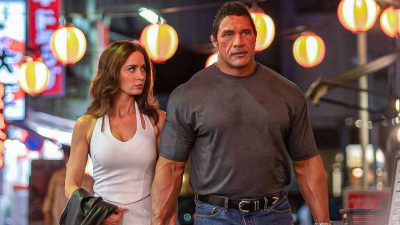

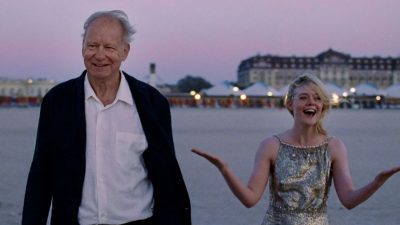

















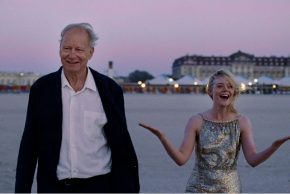

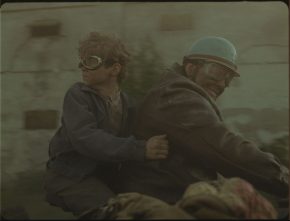
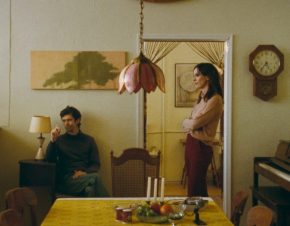
Comments